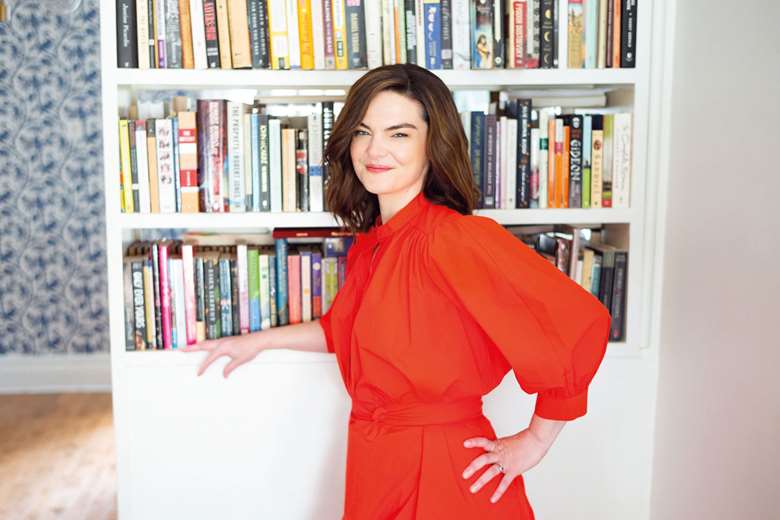Lila Palmer: ‘We do not have to choose between innovation and excellence – and we must not’
Thursday, April 4, 2024
The librettist Lila Palmer on setting the right direction for the development of opera in the 21st century

‘Prima le parole, e poi la musica.’ First the words then the music, to misquote Salieri, had been opera’s modus operandi until Richard Wagner wrapped his arms around the form and convinced Europe and North America that the composer genius was the arbiter of dramatic truth, much to the detriment of dramaturgy for the next century and a half. But the pendulum seems to be swinging back towards specialism.
As the opera community attempts to expand the voices and perspectives on stages, it amplifies and trains ever more new librettists each year. A recent survey by American Lyric Theater counted more than 40 companies training or developing librettists in North America alone. This number reflects a sea change in both the volume of new operas being created and in opportunities to make a career as a librettist.
A consistent, healthy environment makes its inhabitants bolder, freer, more willing to take risks
This is a transformation equivalent to the birth of the Young Artist Programme for singers, participation in which remains perhaps the single strongest predictor of career success. Like vocalists trained through the Lindemann or Jette Parker programmes, librettists produced by a select few talent incubators have a much more significant shot at success, due to comprehensive training, performance profile, or pathways to production built into the development. But the professionalisation of librettist training has not yet translated into a stronger presence in leadership.
When I was appointed general and artistic director of New Orleans Opera, among the first responses I received was, ‘I see your creative work everywhere, why on earth would you want to run an opera company right now?’ In other words: ‘Why take on the hard part?’
Two main factors drove my decision: first, opera is a form that requires resources, and unless you control the resources, you have no control of the product. Second, I believe that we are at a crossroads for the form. Reports of opera’s death are greatly exaggerated, but change is here, and in the rush to progress, the finer points – the how and with what tools and what to keep and what to toss – can be easily forgotten. Evolution doesn’t have to mean seven singers and a MacBook Pro, nor should it mean questionable structural coherence, paint-by-numbers orchestration, or the same old trauma porn on reduced resources.
It is relatively easy to move the new works festival or edgy underdog company forward, gaining breathless headlines along the way. It is another thing entirely to move the dial in the proscenium arch, to maintain quality, longevity, and artistic standards, while humanising and expanding our vision of what opera can be.
A consistent, healthy environment makes its inhabitants bolder, freer, more willing to take risks. In our current political climate, holding the beauty and humanity and nuance of the centre seems more important than ever. And if I wish for things to be other than they are, it is my responsibility as a human, parent, and servant of the art form, to step up and try to create that desired reality.
A company which provided just such an environment for many artists, including myself, is currently having its entrails picked over. But that shouldn’t deter those of us who have believed in the project of ENO from trying to capture some of what it has done well. What we need to offer audiences is different now, and the way we develop talent, support artists and staff, and connect with communities must evolve.
I have been fortunate as a creative fly-on-the-wall to see many artist-centred, innovative practices in large successful opera houses, supported by excellent financial management and deep community spirit. Artists vote with their feet, as do audiences. We do not have to choose between innovation and excellence – and we must not.
I’ve been incredibly heartened to see creatives who are also talent-nurturers finding success: folks like Kelley Rourke, leading the American Opera Initiative, with works in production all over the English-speaking world, Stephen Plaice, professor at Guildhall School of Music & Drama and co-translator of Glyndebourne’s new Merry Widow with Marcia Bellamy, and conductor Lidiya Yankovskaya, maintaining directorship of Chicago Opera Theater’s Vanguard composer training program as she becomes a global name. I hope librettists will follow their lead.
We need people who care about story, plan with care, and anticipate outcomes. We need people who can create worlds in which others want to live. We need creatives to envision what is possible – and their leadership to make that vision a reality.
Damien Geter and Lila Palmer’s American Apollo receives its world premiere at Des Moines Metro Opera this July
This article originally appeared in the Summer 2024 issue of Opera Now. Never miss an issue – subscribe today














